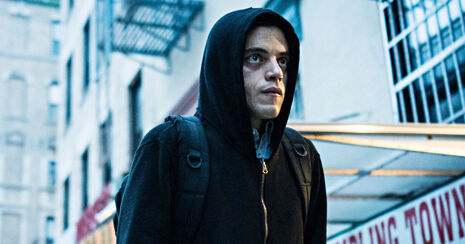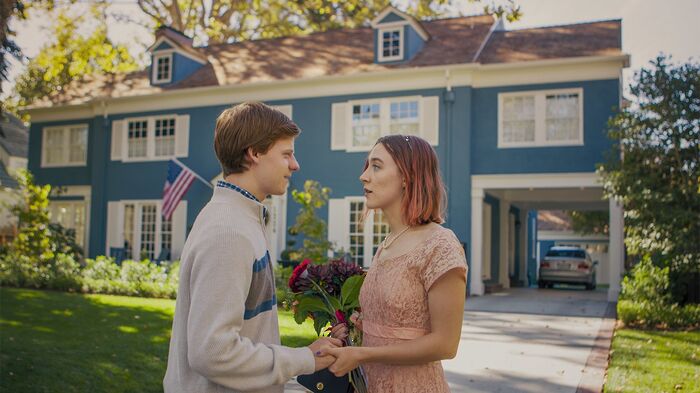Mr Robot review: ‘marvel at the creative masterpiece’
Toby Saer reflects on a provocative and endlessly entertaining series, currently available on Amazon Prime

Creative control is currently a valuable rarity in the media industry. In a world where “creative differences” lead to many high-profile directors getting kicked off big-budget safe bets like the Edgar Wright Ant-Man film which could have been, the idea of giving one person the power and the freedom to take control of a project is increasingly relegated to the independent sphere, while most studio blockbusters seem to have been written and directed by committees of middle-aged men playing Angry Birds in the five minutes before lunch.
Nevertheless, Sam Esmail, creator of Mr Robot, is one of the lucky few to have seemingly complete control over his creation, having written almost every episode of the show, and having directed everything since the end of the first season. With its third season at a close, and all episodes available on Amazon Prime, it is worth taking a step back to marvel at the creative masterpiece that the show has been so far.
“We did not see it coming, but in a way, we knew there was no other way it could have been”
This idea of control is one which permeates every scene of Mr Robot; at the very beginning we meet our lead character, an antisocial hacker named Elliot, unknown to us at this point, talking to a confident café-owner who slowly withers in his seat, realising Elliot is going to expose him to the police as the child pornographer he is. We watch Elliot rant to his therapist about the sleeping, unaware, unthinking society he sees around him, and then we watch as he meets the eponymous, enigmatic Mr Robot (on a Ferris wheel, no less), who offers him a chance to do something about it, an impossible hack to take back control from big corporations and back into the hands of “the people”.
But as the viewer we are not allowed simply to watch these events take place; we are made complicit. Breaking the fourth wall is hardly a new trick for TV, but rarely has it been done so immersively: we are Elliot’s imaginary friend, whom he sometimes trusts, and sometimes does not. The audience is thrust into his world, asked to keep secrets and even to help when needed. And in a show where it becomes increasingly unclear what is real and what is illusory, we are treated as a character in our own right, asked to work out what is going on: “Please tell me you’re seeing this too,” Elliot pleads as he looks straight at the viewer at the end of the first episode.
The action is not restricted to Elliot; in some episodes he barely appears, just one character and one plotline among many. And this is utterly to the show’s strength. It is a rare show which is able to keep the viewer engaged with so many seemingly disparate plot threads: when the action shifts to focus on a different character, one relishes the chance to catch up with them, rather than resenting the time wasted which could have been spent elsewhere.
The series is fantastically cine-literate as well, with references to other media made deliberately and subversively. Every twist changes the whole narrative in a way one never expects, and yet, in hindsight, there was no way the story could have done anything differently. When Elliot discovers a shocking piece of information at the end of the first season, he accuses us of knowing it all along, and as we search ourselves, we find that to be true. We did not see it coming, but in a way, we knew there was no other way it could have been. Certain episodes are deliberate pastiches of other works, too. There is, for example, a black twist on an 80s studio sitcom, as well as a (slightly less successful) drug-fuelled episode reminiscent of a David Lynch movie.
One can only marvel at Mr Robot’s camerawork. Esmail adores his long takes (the third season’s tour de force is a tense heist with several interlocking storylines, all ostensibly in a single shot), but he also has an eye for striking imagery and unorthodox framing, alternately putting faces uncomfortably large, or tucked away in a corner, daring the viewer to look at them.
It is possible to go on about every aspect of the show, from the pitch-perfect acting to the enormously varied yet always apposite soundtrack. Every detail, from tiny elements of production design to grand, symphonic storylines, is carefully planned out and executed perfectly. Mr Robot does not always work, for its ideas occasionally overreach, but it is entirely entertaining, engrossing, intellectual, and imaginative. Like many great shows, it asks questions about the human condition, about who is really in control of your life, but it does not stop at simply asking – it reaches through the screen and burrows in our heads, taking control for itself until we have no choice but to find answers
 News / Clare Hall spent over £500k opposing busway 24 December 2025
News / Clare Hall spent over £500k opposing busway 24 December 2025 Comment / The ‘class’ of Cambridge24 December 2025
Comment / The ‘class’ of Cambridge24 December 2025 News / Caius mourns its tree-mendous loss23 December 2025
News / Caius mourns its tree-mendous loss23 December 2025 News / Girton JCR publishes open letter expressing solidarity with Palestine25 December 2025
News / Girton JCR publishes open letter expressing solidarity with Palestine25 December 2025 Comment / Yes, I’m brown – but I have more important things to say22 December 2025
Comment / Yes, I’m brown – but I have more important things to say22 December 2025










